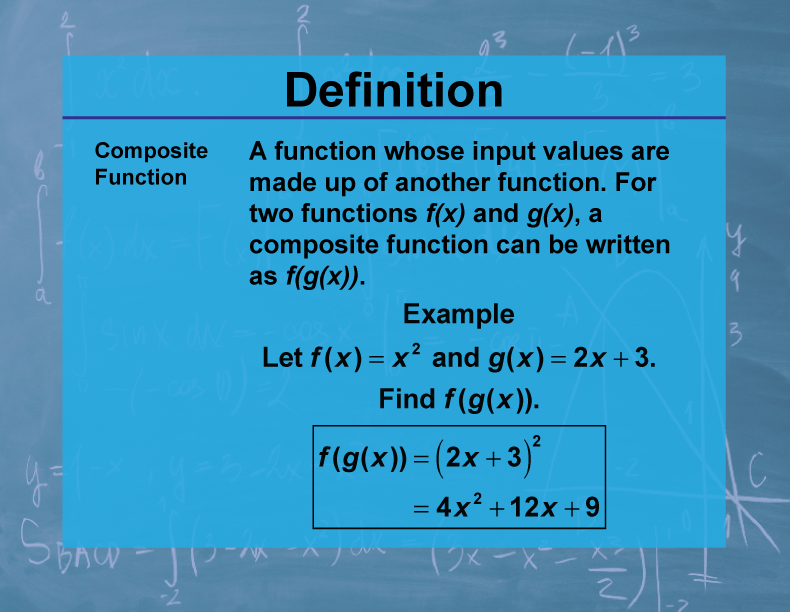
Display Title
Definition--Calculus Topics--Composite Function
Display Title
Definition--Calculus Topics--Composite Function

Topic
Calculus
Definition
A composite function is a function formed by combining two or more functions. If f and g are functions, their composition f ∘ g is defined as (f ∘ g)(x) = f(g(x)).
Description
Composite functions are fundamental in calculus and have wide-ranging applications in various fields. In physics, composite functions are used to describe complex systems where one quantity depends on another, which in turn depends on a third. In economics, they're used to model multi-step processes, such as how consumer spending affects GDP, which then influences inflation rates.
In mathematics education, understanding composite functions is crucial for grasping more advanced calculus concepts, particularly the Chain Rule for differentiation. It helps students develop a deeper understanding of function relationships and how changes propagate through interconnected systems. This concept is essential for modeling real-world phenomena where multiple dependencies exist.
Teacher's Script: "Let's consider a real-world example of a composite function. Imagine you're running a lemonade stand. The profit (P) depends on the number of cups sold (n), which depends on the temperature (T) that day. We might have P(n) = 0.5n - 10 (profit function) and n(T) = 2T - 30 (sales function). The composite function P(n(T)) = P(2T - 30) = 0.5(2T - 30) - 10 = T - 25 gives us profit as a function of temperature. Can you interpret what this composite function tells us about the relationship between temperature and profit?"

For a complete collection of terms related to Calculus click on this link: Calculus Vocabulary Collection.
| Common Core Standards | CCSS.MATH.CONTENT.HSF.IF.C.7, CCSS.MATH.CONTENT.HSF.BF.A.1.C |
|---|---|
| Grade Range | 11 - 12 |
| Curriculum Nodes |
Algebra • Advanced Topics in Algebra • Calculus Vocabulary |
| Copyright Year | 2023 |
| Keywords | calculus concepts, limits, derivatives, integrals, composite functions |